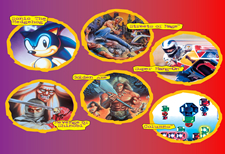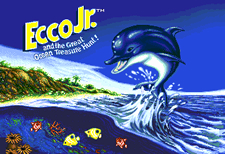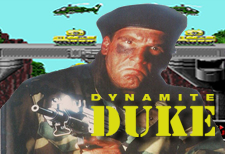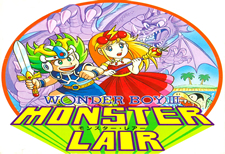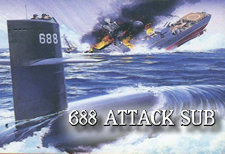A sure sign of a console’s success is when some of its best-selling software is repackaged as a sort of “greatest hits” collection. All major publishers have done this (though Namco seems to have jumped the shark), and Sega is no different. Late in the life span of the Genesis, it released 6-Pak. No, that wasn’t a member of Degeneration X; it was a compilation cartridge that held six titles, some more classic than others.
Tag: Sega Enterprises
Ecco Jr.
One of Sega’s most enduring franchises since the Genesis era has been Ecco the Dolphin. The famous cetacean has appeared on almost all its consoles, and he manages to turn up where you’d least expect him. Case in point: Ecco Jr., a game in Sega’s short-lived Sega Club line that was geared towards the younger set. Adapting a franchise known for its difficulty for children was one heck of a challenge, and we have a full review of the finished product.
Dynamite Duke
There’s something to be said about straight-up shooters. I’m not talking about the “lone pilot vs. invading aliens” classics. No, I mean one guy with a BIG gun just squeezing the trigger until the vibrations stop! Dynamite Duke appears to be the game to fit the bill in this regard, until you actually play it. Aren’t explosions and big armament supposed to invoke some kind of a response? Shock and awe, meet your evil twin.
Wonder Boy III: Monster Lair
Sega seemed to have no worries keeping track of the continuity of the Wonder Boy series. As told in our complete retrospective, the games hop around from the original series to the Monster World line without much regard for keeping things clear. The first game to use the “monster” tag was a platformer that bore little resemblance to the action/RPG titles that would follow. Originally released in arcades, Monster Lair (bearing the title Wonder Boy III) came to the Genesis in a fashion that left much to be desired. As ports go – especially Westone ports – this one was especially disappointing.
688 Attack Sub
During the early days of the Genesis, Sega quietly released ports of two Electronic Arts PC simulations, M-1 Abrams Battle Tank and 688 Attack Sub. It was an attempt to diversify the console’s library, and it was successful, to some extent. The Genesis was able to reproduce faithful versions of the pair, which had been released on much more powerful computers, but there were still some issue to be had.

